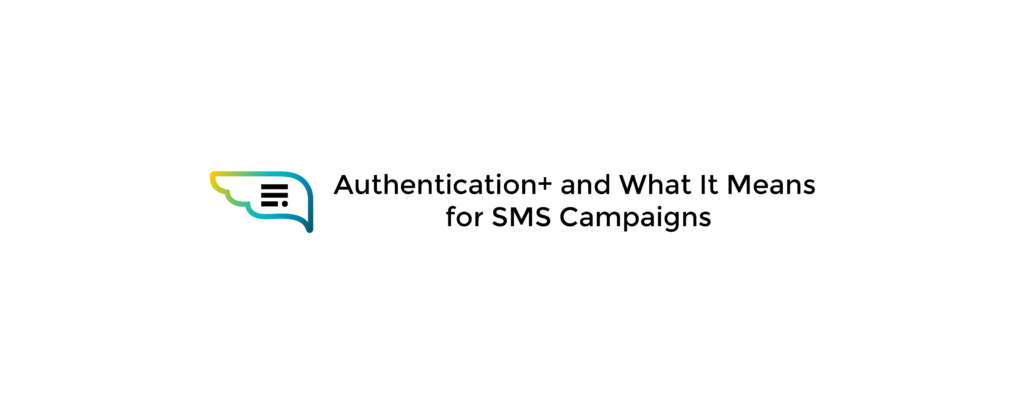
As of October 17, 2024, significant changes have been made to the SMS messaging landscape, particularly through updates to The Campaign Registry (TCR) and the introduction of Authentication+.
For businesses that rely on SMS as a core part of their communication strategy, these changes have the potential to reshape how we approach messaging compliance and delivery.
At Volli, where we specialize in SMS services alongside our other telecommunications offerings, these updates are not just industry news—they directly impact how we support our clients. Let’s dive into what these changes mean and how Volli ensures that our clients remain ahead of the curve.
What Is The Campaign Registry (TCR)?
The Campaign Registry (TCR) is the governing body that oversees application-to-person (A2P) SMS messaging in the U.S. It plays a critical role in ensuring that businesses using SMS comply with carrier regulations, reducing spam, and protecting consumers from unwanted messages. If you’re running A2P SMS campaigns (whether it’s marketing, customer service, or notifications), you are required to register your campaigns with TCR. Failure to do so can result in blocked messages or hefty fines from mobile carriers.
Until now, registration with TCR was sufficient for companies to remain compliant. However, with the rapid rise of SMS-based marketing and the increasing need for transparency and trust between businesses and consumers, TCR has implemented a new layer of compliance: Authentication+.

Authentication+ is an additional layer of identity verification introduced by TCR to enhance trust within the A2P messaging ecosystem. This process is designed to ensure that the business or organization sending SMS campaigns has verified its identity beyond the standard campaign registration process. Essentially, it’s about creating a more transparent system where carriers, consumers, and businesses can trust that the messages are coming from legitimate sources.
Key Changes Introduced by Authentication+:
Businesses now need to provide additional information during the TCR registration process. This includes more rigorous Know Your Customer (KYC) data points, such as business registration details, tax ID numbers, and proof of legal entity. The goal is to confirm that the business sending the message is legitimate and operating within the confines of industry standards.
The approval process for SMS campaigns has become more stringent. While the previous process was already thorough, Authentication+ adds another layer where businesses may face more detailed scrutiny of their messaging practices. This includes ensuring that content aligns with the approved campaign purpose and that businesses adhere to consumer consent practices.
Alongside the new requirements, there is an increased cost for non-compliance. If a business does not authenticate properly or bypasses registration, it risks not only message filtering but also higher fines and fees from mobile carriers. This serves as a deterrent against fraudulent or spammy SMS practices, ultimately cleaning up the messaging ecosystem.

The driving force behind the Authentication+ changes is twofold: security and transparency.
With the rise of phishing scams, fraudulent messages, and businesses taking advantage of bulk SMS without proper consent, there was a need for the industry to tighten controls. These measures are meant to:
By ensuring that messages come from verified sources, consumers can feel more confident in the SMS campaigns they receive. This builds trust in the A2P SMS ecosystem, benefiting both consumers and legitimate businesses.
Mobile carriers have been dealing with a flood of spam and fraudulent SMS traffic. These changes help them filter out bad actors more efficiently, reducing the load on their networks and improving the deliverability of legitimate campaigns.
For businesses that play by the rules, these changes mean that their messages are more likely to be delivered without issue. Carriers will prioritize authenticated campaigns, ensuring higher delivery rates and better performance metrics for compliant businesses.

At Volli, we’re always proactive when it comes to regulatory changes. The introduction of Authentication+ aligns with our commitment to transparency, security, and ensuring the best possible outcomes for our clients’ SMS campaigns. Here’s how we are navigating these changes:
Streamlined Registration Process:
↪ We’ve updated our onboarding process to include all new Authentication+ requirements. This ensures that your campaigns are not just compliant with the latest TCR guidelines, but that they also move through the approval process swiftly and efficiently. We’ve built strong relationships with carriers and TCR, giving us an edge when it comes to navigating these regulatory waters.
↪ Volli provides hands-on support for clients dealing with these new regulations. We offer guidance on the documentation required for Authentication+ and assist with ensuring your campaigns align with the latest best practices. Our focus is to help you stay compliant without the headaches of navigating this evolving landscape alone.
↪ With carriers giving priority to authenticated campaigns, Volli’s expertise in the SMS space ensures that your messages have the best chance of getting through. We monitor campaign performance and deliverability rates closely to make sure you’re not just compliant, but that your campaigns are reaching the people who matter most.
↪ While there may be increased costs related to Authentication+ (such as registration fees or penalties for non-compliance), Volli remains committed to offering cost-effective solutions that allow you to get the most value from your SMS campaigns. We work with clients to ensure their budgets can accommodate these new changes without sacrificing quality or reach.

To give you an idea of what this means in practice, let’s look at two scenarios.
Retailer with Regular Promotions:
A national retailer sending SMS promotions can no longer rely on simple campaign registration. They now must provide enhanced verification documents under Authentication+, including their business license and tax ID. While this may seem like an added burden, the result is a much higher deliverability rate for their promotional messages, ensuring that customers see their offers instead of having them filtered by carriers
Healthcare Provider Sending Appointment Reminders:
A healthcare provider using SMS to send appointment reminders will now need to ensure they meet the enhanced KYC requirements. However, once authenticated, their critical appointment reminders are more likely to bypass spam filters, ensuring patients receive them on time.

While the introduction of Authentication+ may seem like another hurdle in an already complex SMS landscape, it’s ultimately a step forward for both businesses and consumers. At Volli, we’re ready to help you navigate these changes with ease, ensuring your campaigns remain compliant, secure, and effective.
The October 17th changes underscore the importance of staying ahead in the evolving world of telecommunications.
With Authentication+ now a central part of the SMS ecosystem, businesses must adapt—but with Volli by your side, you can feel confident that your messaging campaigns are in expert hands. Whether you’re new to SMS or a seasoned pro, our goal is to help you thrive in this new regulatory environment, maximizing the value of every message you send.
#tcr #thecampaignregistry #voip #sip #sms
